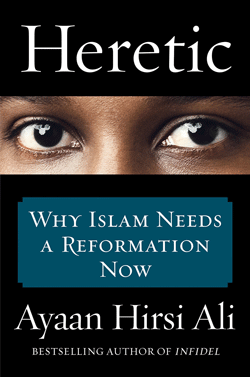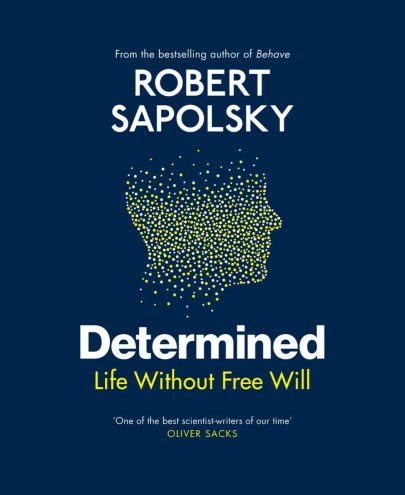Aug 1, 2015 Books
 HERETIC
HERETICAyaan Hirsi Ali
(HarperCollins, $34.99)
This article first appeared in the July/August 2015 issue of Metro. Review by Lamia Imam.
“Be warned that the death that you are trying to prevent will surely find you. Afterwards, you will be taken back to the All Knowing and He will tell you what you attempted to do.” (62:8, Quran)
In her book Heretic, Ayaan Hirsi Ali says the use of this verse by the person who murdered Theo van Gogh in Amsterdam for his anti-Islamic film-making illustrates the violent nature of Islam. I have read the Quran from cover to cover and I won’t deny there are parts I do not understand.
But I also keep in mind that at the very beginning it states: “This is the Book in which there is no doubt, a guide for the righteous. Those who believe in the unseen, and perform the prayers, and give from what We have provided for them. And those who believe in what was revealed to you, and in what was revealed before you, and are certain of the Hereafter.” (2:2-4, Quran)
I’m not sure I am any of those. Am I righteous? Do I believe in everything that was revealed? What was revealed? And by whom?
My mother used to say the Quran is not meant for all Muslims. It is not designed to be understood by everyone. The Five Pillars of Islam (faith, prayer five times a day, fasting during Ramadan, giving charity and making at least one pilgrimage to Mecca) are supposed to be the base requirements. I confess I do not practise Islam so devoutly, so I’m not entirely sure I should even be commenting on what the Quran says.
Growing up, I had a friend whose family were from Egypt and who spoke fluent Arabic. She told me that even in Arabic-speaking countries the archaic language has to be translated to be better understood. Terrorists who use out-of-context verses to justify their actions are not the authority on what it says.
Hirsi Ali puts Muslims into three types: Medina Muslims are those who follow the religion but do not believe in violence, which distinguishes them from Mecca Muslims. There are also the Modifying Muslims, dissidents such as Hirsi Ali herself.
While she admits the majority do not believe in violence, she is convinced they are too isolated to make that understood by the rest of the world. So her book is largely a fear-mongering diatribe designed to scare Westerners about the growing Muslim populations in their countries.
Early on, she cites support for the death penalty for denunciation of Islam as a reason to be scared. Given she lives in the US, where the death penalty is widely embraced despite the rest of the Western world having moved on, it’s laughable.
Her central thesis — that reformation is needed — is right. But by declaring that “Islam is not a religion of peace” while also admitting the vast majority of Muslims do not resort to violence, she loses the argument. Most religions have gone through a period of darkness. Women’s voices were largely ignored by all major Abrahamic religions.
Reformation does not require the distortion of beliefs. Women and progressive scholars need to be studying Islam and guiding the Islamic world out of darkness — but the darkness is already lifting.
Many things have been justified in the name of religion, including Hirsi Ali’s painful experience, which I do not want to diminish. But rather than offer a solution, she uses rhetoric to stir more anger. To go back to that passage from the Quran, we all know death is inevitable yet few would use the passage to justify killing others. It serves, instead, as a reminder of our mortality and the need to be accountable for our actions.





